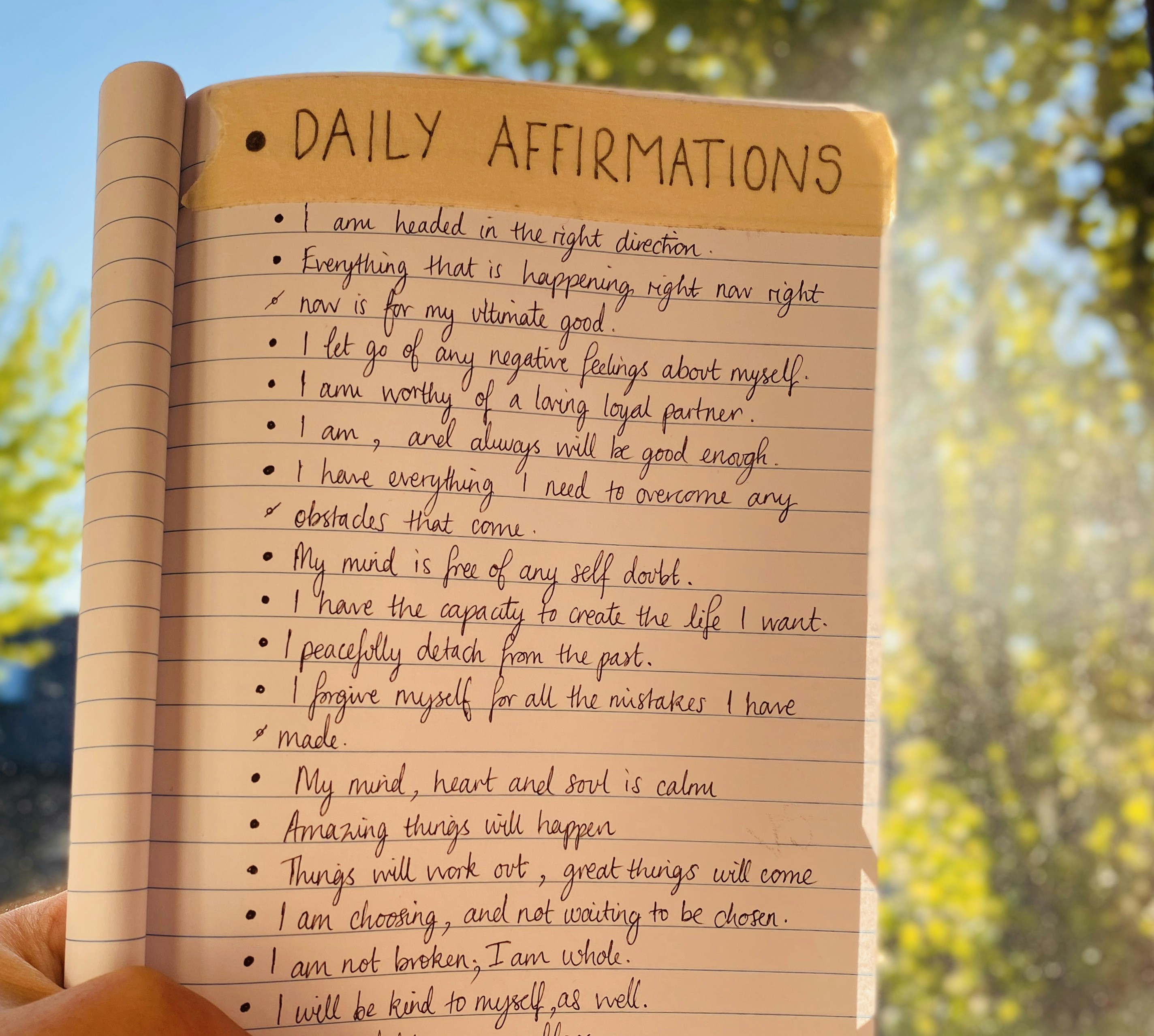Life can sometimes feel like a heavy weight. You wake up tired. You go through your days feeling empty or angry. Nothing seems to bring joy. The smallest things annoy you. The big things feel too much to handle. You wonder why others are smiling while you feel drained, upset, and tired of everything. You try to keep up a happy front, but deep down, you keep asking yourself: Why am I so miserable?
The truth is, misery usually doesn’t come from just one cause. It can build up from stress, loss, pressure, loneliness, regret—or simply from being stuck in a joyless routine for too long. You might not even be able to tell what exactly is making you feel this way. You just know that something’s wrong and you’re struggling to deal with it.
You’re not alone. Many people go through seasons like this. But there is a way out. It’s not about flipping a switch or becoming a brand new person overnight. It’s about learning how to take small steps in a better direction. Actions that bring back your calm, your strength, and your hope for a life that feels right.
This post isn’t about a quick fix. It’s about helping you stop living in pain and start moving toward something lighter, healthier, and more meaningful.
Read also: How Not to Let Your Emotions Control You – 8 Ways
Be Willing to Accept That Something Isn’t Working
This first step is often the hardest: admitting to yourself that something needs to change. When you’re miserable, your first reaction might be to cover it up, deny it, or pretend things are fine. You might even start blaming yourself, thinking something is wrong with you.
But feeling miserable doesn’t mean you’re broken. It means something in your body, your heart, or your mind is asking for attention. You don’t have to know exactly what it is. You just need to admit that you’re not okay—and that you don’t want to live like this anymore.
Say it aloud or write it down: I’m miserable because something isn’t right in my life. I want to feel better. I want things to change.
That’s a brave step. It means you’re no longer ignoring your pain—you’re facing it. That’s how healing begins.
Don’t Keep Pretending

Pretending is one of the habits that keeps you stuck in misery. You smile when you’re hurting. You say “I’m fine” when you’re not. You carry on with life even though you feel empty inside. But the more you pretend, the further you get from the help you need.
You don’t have to tell everyone, but open up to just one person you trust. Write to them. Tell them how you’re really feeling. Even saying “I’m not okay” can be a huge relief. Denying your pain keeps you locked in it. Letting it out creates room for change.
If you don’t want to talk yet, start by writing your thoughts down in a notebook. Just let your mind speak. It’s powerful to be honest with yourself.
Look At What’s Draining Your Joy
Misery doesn’t always come from big events. Often, it’s the result of small things building up. Maybe work is wearing you out. Maybe your relationships are full of drama. Maybe your environment is messy and stressful. Or maybe you’ve been ignoring your needs for too long.
Take a quiet moment and ask yourself: What feels heavy in my life? What makes me dread the day? What makes me feel worse when I think about it?
Write down your answers. It could be people, habits, routines, or thoughts. The goal is not to blame—but to become aware. You can’t change what you don’t see. But once you notice what’s weighing you down, you can start making changes—one step at a time.
Read also: How to Cultivate Joy in Your Life (10 ways)
Break Bad Habits and Replace Them With Better Ones
Many habits that people turn to for comfort actually make misery worse in the long run—staying up too late, endlessly scrolling online, drinking too much, eating poorly, or isolating yourself. These things may bring short-term relief but add to long-term pain.
To stop being miserable, take a good look at your routines. Ask: What do I keep doing that makes things worse? Then ask: What’s one small thing I can do instead?
Maybe it’s going to bed earlier. Maybe taking a short walk each morning. Maybe eating one healthy meal a day. Maybe spending less time around people who drain you.
Swapping even one bad habit for a better one is a solid start. The small things you do every day add up to a better life. You don’t have to do it all—just start somewhere.
Take Back Control of Your Mind
A lot of misery comes from the way we talk to ourselves. Your thoughts shape your feelings. If your mind keeps repeating, I’m not good enough, Nothing ever works out, My life doesn’t matter—your brain starts to believe it. And once you believe it, you start living it.
But not every thought is true. You can challenge them. Start by noticing what your mind is saying. Then ask: Is this really true? Could I see it differently?
If you think, “I’ll never get out of this mess,” try saying instead: “I feel stuck right now, but that doesn’t mean it will stay this way forever.”
You won’t stop all negative thoughts. But the more you catch and question them, the less power they have. Over time, you can build a safer place in your own mind.
This approach is backed by research from the Positive Psychology Center at the University of Pennsylvania. Their work shows that challenging negative thoughts and focusing on personal strengths can improve mental health.
Treat Your Body Like It Matters
Your body and mind are connected. When your body is tired, hurting, or stressed, your emotions suffer too. You don’t need a gym membership or a perfect diet—just the basics:
-
Sleep: Get as much rest as you can. Poor sleep hurts your mood.
-
Food: Avoid relying on sugar or junk food for energy.
-
Exercise: Move a little every day—even if it’s just stretching or a short walk.
-
Water: Stay hydrated. Dehydration makes you feel worse.
Caring for your body sends the message: I matter. Even a small act of self-care can make you feel more alive.
Set Small Goals to Build Hope
When you feel hopeless, big goals seem impossible. But small goals are different. They give you a reason to keep going. They remind you that progress is possible.
Choose one goal each day. Clean a room. Make a call. Take a shower. Go for a walk. When you complete it—celebrate it.
These small wins add up. Over time, they become a new story. A story where you are not stuck, but growing.
A study by the American Psychological Association found that setting small, clear goals can boost motivation and mental strength.
Talk to Someone Who Can Help
Sometimes misery goes too deep to handle alone. If your pain feels too heavy, it’s okay to ask for help. You don’t have to carry everything by yourself.
Talking to a therapist, counselor, or mental health coach can make a big difference. They’re trained to help you understand your thoughts, your pain, and your options. They help you find tools that work for you.
If professional help isn’t possible right now, talk to a trusted person—a friend, teacher, family member, or spiritual leader. Asking for help doesn’t make you weak. It means you’re human.
If you’re in a crisis, reach out to organizations like Crisis Text Line or local mental health support services in your country.
You may feel alone, but you don’t have to be alone.
Final Thoughts
Misery can feel endless. You might think life has passed you by. But that’s not the truth. You’re not stuck forever. The worst days don’t mean you’re beyond hope. It’s not too late. Your life still matters—even if you don’t fully see it yet.
Start with small actions each day. You can’t fix everything at once. But you can make one step. Say one truth. Make one choice to stop pretending and begin healing.
You don’t have to chase extreme happiness. Aim for a life that feels real. A simple life, filled with small and honest joys.
You deserve peace. You deserve a life that fits you. And even if you don’t feel strong now, you have the power to create it.
Start today. Start small. Begin where you are.
Save the pin for later



